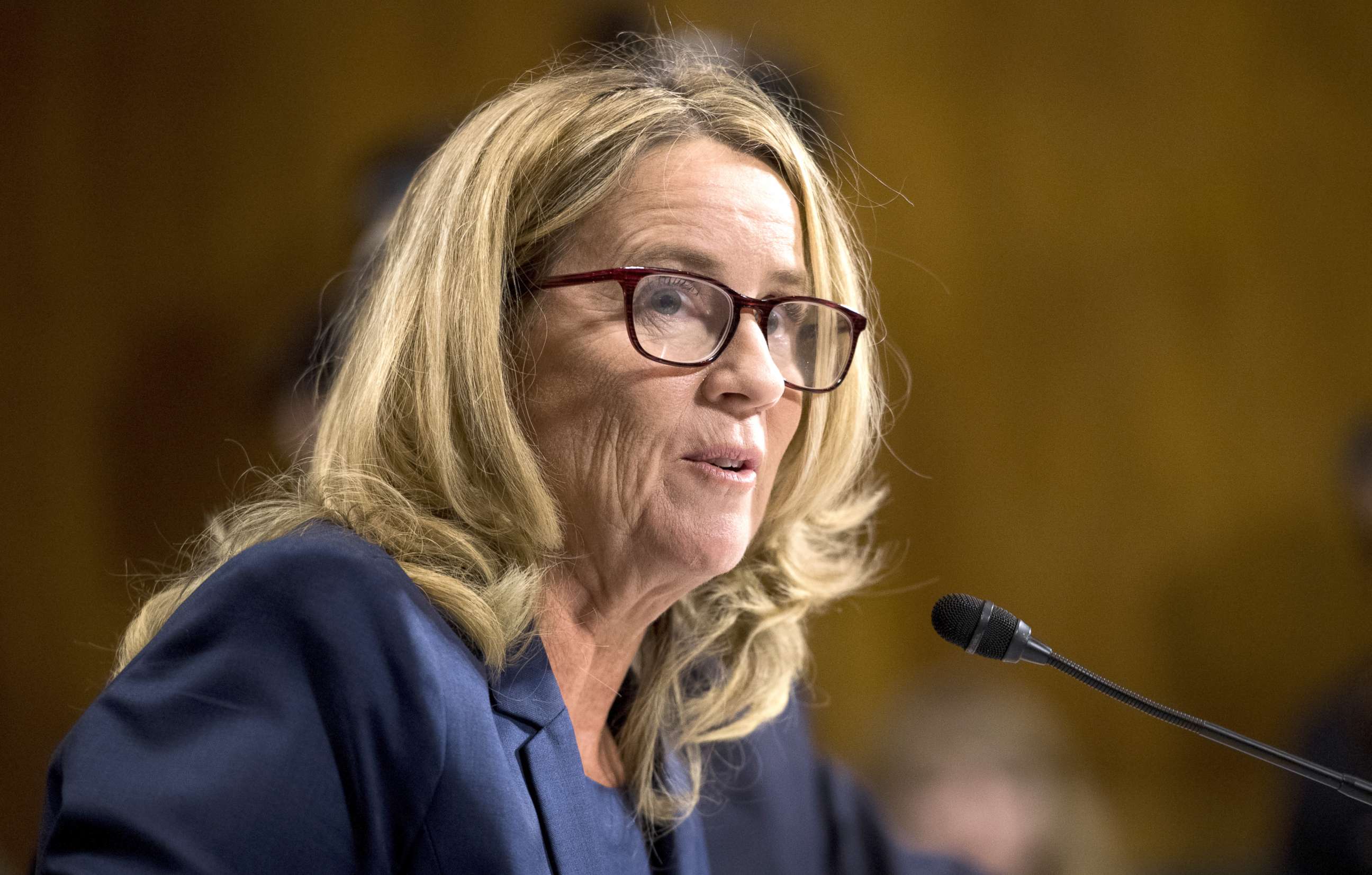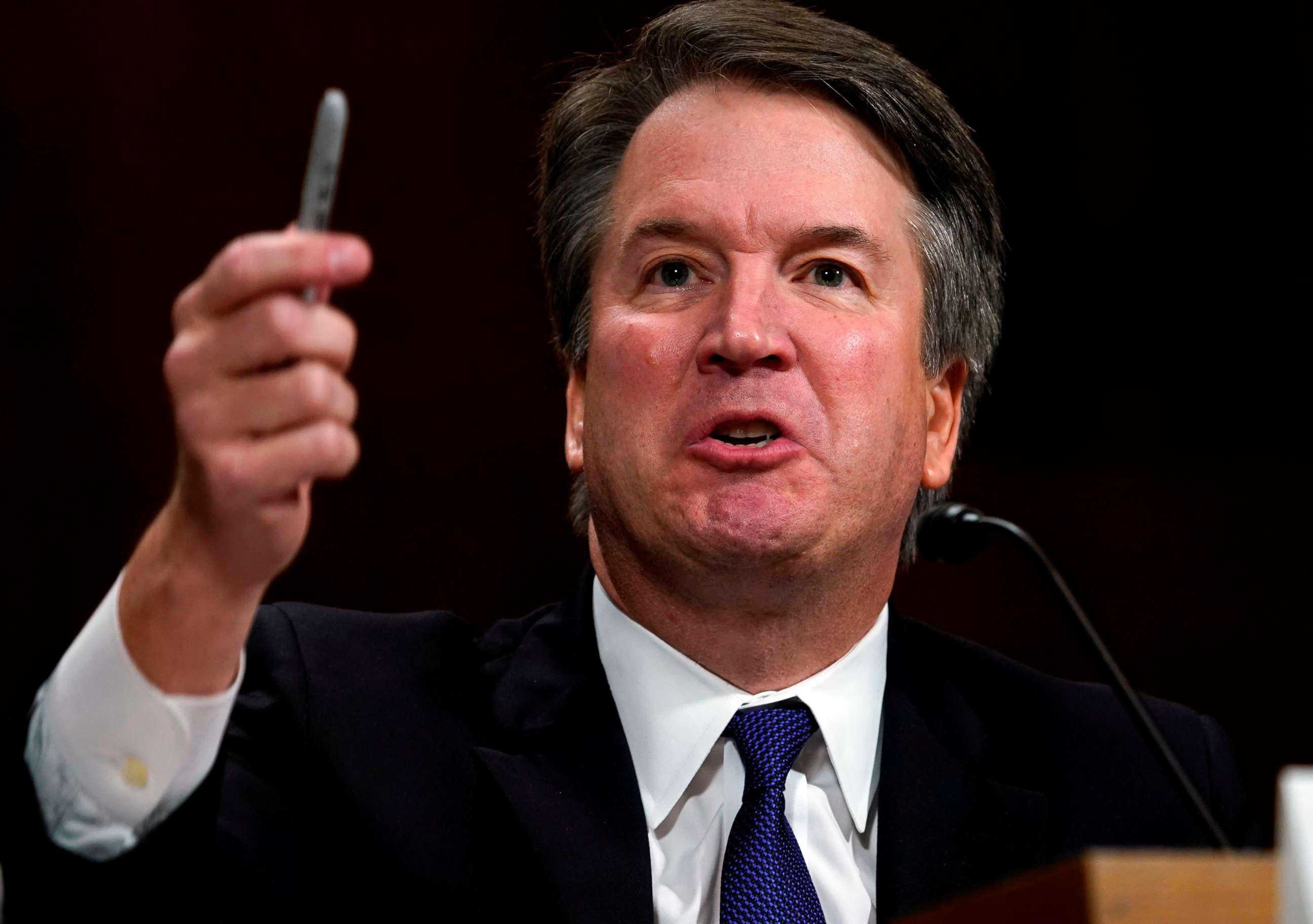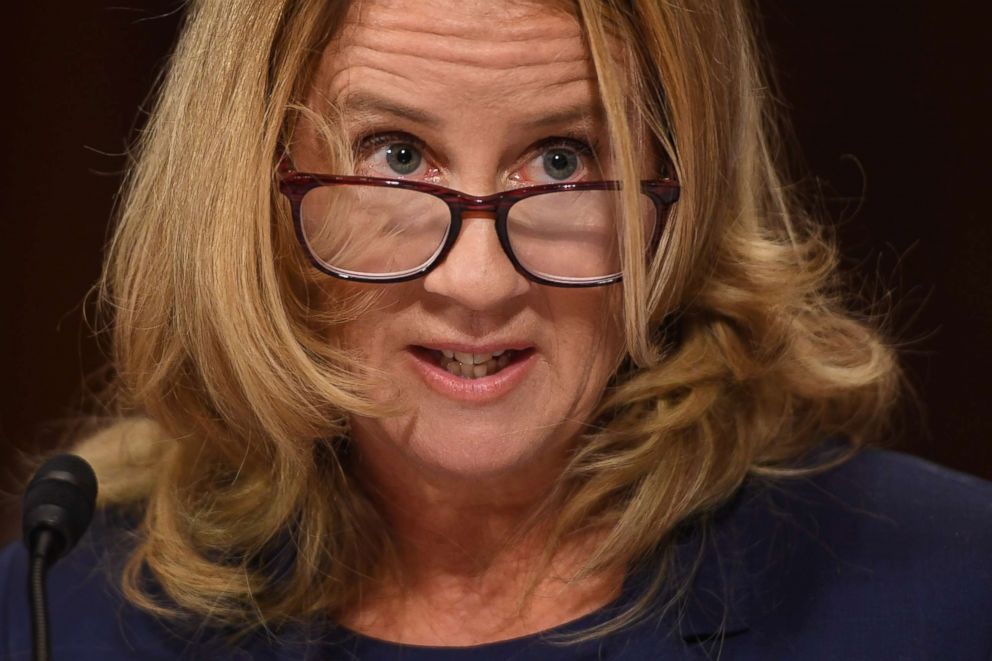Kavanaugh supporters ignore women's voices at their own peril: COLUMN
For many watching Thursday's hearing, it wasn't about politics.
"Add me to list of a young girl who was sexually assaulted at the age of 14, and I, now age 59, have never told anyone until now!"
That tweet, with an accompanying name, hit my iPhone as Christine Blasey Ford testified before the Senate Judiciary Committee on Thursday.
It turned out to be one of many heartfelt and painful missives that showed up on my seldom-used Twitter account.
In a full day on the air, I expect the usual partisan, and often hateful, messages that pop up. This day certainly produced its share of those, but it also brought forth many people's personal revelations.
"I was assaulted when I was 14, by my best friend's father. I told my mom, but she didn't believe me, so I said nothing," another Twitter user posted.
As Ford kept answering questions, the tweets kept coming: "I didn't tell about a rape that happened to me 33 years ago and didn't have the courage to tell my own mother for 30 years."
These women, and many, many more, wanted me to know that what Ford was saying mirrored their experiences.
During the hearing, calls to the Rape, Abuse and Incest National Network's hotline shot up 147 percent from a typical day.
Those callers weren't interested in the bickering among the senators at the hearing. By the end of the day, I suspect few people watching the spectacle were.
Ford's accusation of sexual assault by President Donald Trump's Supreme Court nominee, Brett Kavanaugh, had been the stuff of torrid reporting by the media and a timid response from the Senate for days.
Now the whole world -- and apparently it was actually the whole world -- watched as the accuser and accused delivered separate testimonies before the committee that would help to decide Kavanaugh's fate.

When Ford, a psychology professor from California, entered the hearing room, we had our first real look at her.
Up until then, we had seen her as a smiling surfer in sunglasses in the few images of her in the media over the last few weeks.
How would she actually look? How would she comport herself? Would she be credible? That's what we were curious about around my table of commentators.
Then she came in looking like "the girl next door," with a small speaking voice, and everyone settled in to listen.
But thousands of women didn't hear her voice as small -- they heard it as empowering.
"Thank Dr. Ford!" enthused a woman who wrote that she was first raped at age 4.
By the time Ford's time in the hot seat ended, Kavanaugh's supporters in the Senate and the White House were reportedly glum. But then the nominee strode into the committee room and delivered an opening statement filled with both anger and emotion, a man who said he felt wronged by an unfair accusation.
For the Ford questioning, the Republicans on the committee, afraid of appearing to bully a woman, had turned over their time to Rachel Mitchell, a female prosecutor experienced in sexual-assault cases. In a friendly and kind manner, Mitchell tried to poke holes in Ford's story by highlighting apparent inconsistencies in her account.
But while Mitchell approached the task in a methodical, lawyerly way, Democratic senators made political speeches supporting Ford. When Kavanaugh took the seat, with his clearly suffering wife sitting behind him, the Republicans felt no constraints and started making impassioned political speeches of their own.

Kavanaugh's performance, plus those of his supporters, turned the confirmation prospects around, and it now seems likely that he is headed to the Supreme Court. All of us in the business of analysis will assess both the policy and political implications of that confirmation in the days ahead.
But for the women who have been tweeting their personal horrors and have called into the assault hotline, this is not about politics -- it's about listening to them and believing them.

As Ford was testifying, one woman wrote: "How this country and administration treats her...will help determine the way all victims of sexual assault are treated."
For these women it's not about Democrats and Republicans, it's not about Ford and Kavanaugh, it's about them -- their pain that's never been recognized. Though it's not fair for Kavanaugh to bear the weight of their grievances, it would also be perilous for his supporters in the Senate to ignore their newly raised voices.
Cokie Roberts is a political commentator. Opinions expressed in this column do not necessarily reflect the views of ABC News.




